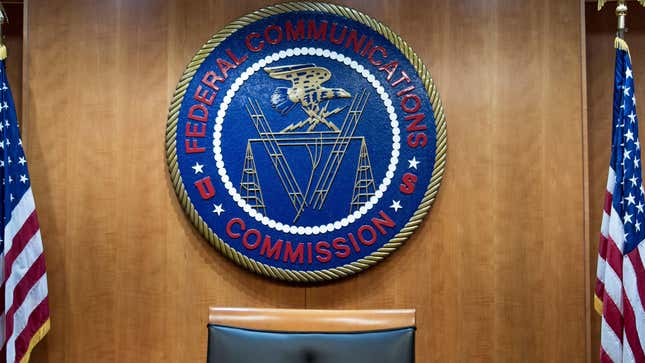
Low-income households can enroll in the FCC’s Emergency Broadband Benefit Program (EBB) starting May 12.
Spotted by Ars Technica, the agency announced the arrival of its much-needed program Thursday alongside a brand new website. The benefit provides eligible households with a discount of up to $50 a month on their broadband plan, and up to $75 a month if the household is on tribal lands.
The EBB also provides a one-time discount of up to $100 on a computer or tablet for eligible households. However, to take advantage of that requires a co-payment between $10 and $50.
“In less than two weeks, we will have a new way for disconnected Americans to access the internet to carry out their day-to-day life, so they can reach the virtual classroom, take advantage of telehealth, and seek new employment opportunities,” said FCC Acting Chairwoman Jessica Rosenworcel in a press release announcing the program.
For the purposes of the program, a household is defined as “a group of people who live together and share money (even if they are not related to each other).” So a family of four that shares money, in a joint bank account for example, as a whole would qualify for the EBB. However, if someone lives with roommates and does not share money with those roommates, each person living at the same address would be treated as individual households, so each roommate would qualify for the EBB. The same would apply to residents of assisted-living facilities.
But for any household to be eligible, its income must be at or below 135% of the federal poverty guidelines. A family of four living in Nebraska would need to make below $35,775 a year. A college student living with roommates would need to make below $17,388. Alaska and Hawaii have higher income thresholds than the other 48 contiguous states, D.C., and territories.
If a household does not meet the income guidelines, there are other guidelines it can meet to be eligible for the EBB, such as participating in one of several tribe-specific programs, experiencing a substantial loss of income since Feb. 29, 2020, or meeting a participating provider’s existing low-income or covid-19 program.
If you have children and they participate in the Free and Reduced-Price School Lunch Program, that automatically qualifies your household as well, or if you already receive Lifeline program benefits that reduce your monthly phone bill. Basically, there are many ways to qualify.
The new EBB does note, however, that it’s a temporary program, meaning once the funds are gone, they are gone.
“The Emergency Broadband Benefit Program will end when the fund runs out of money or six months after the Department of Health and Human Services declares an end to the COVID-19 health emergency, whichever is sooner,” says the application portion of the EBB website.
There are currently $3.2 billion in subsidies available, and another $6 billion would become available if the legislation is approved. That extra funding bill was only introduced in Congress last month, and it’s currently being looked at by various subcommittees. There’s a ways to go before that extra funding is approved or not approved, but if it does pass the House and Senate, it seems likely President Biden will sign it into law, especially if the money runs out before the pandemic is over.